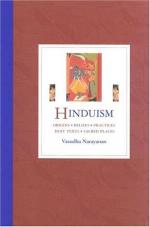|
This section contains 3,374 words (approx. 12 pages at 300 words per page) |

|
The reviewers of Indian sociology generally trace its origin to the works of several British civil servants, missionaries, and Western scholars during the eighteenth and nineteenth centuries (Dhanagere 1985; Mukherjee 1979; Rao 1978; Singh 1986; Srinivas and Panini 1973). British administrators wanted to understand the customs, manners and institutions of the people of India to ensure the smooth running of their administration. Christian missionaries were interested in learning local languages, folklore, and culture to carry out their activities. The origin, development, and functioning of the various customs and traditions, the Hindu systems of caste and joint family, and the economy and polity of the village/tribal community were some of the prominent themes of study by the British administrators and missionaries as well as other British, European, and Indian intellectuals. The first all-India census was conducted in 1871. Several ethnographic surveys, monographs, census documents, and gazetteers produced during this period constitute a...
|
This section contains 3,374 words (approx. 12 pages at 300 words per page) |

|


